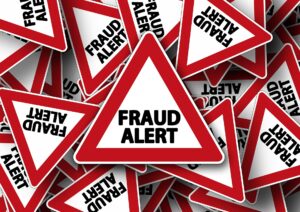|
After working hard and strategically saving your money, the last thing you want is to fall for a scam. It never hurts to be extra cautious when you receive a suspicious phone call or email. Even when visiting a website that just doesn’t seem legit.
An immediate red flag is when you receive an incoming call or message requesting personal information such as your social security number or banking information.
Scammers are becoming more convincing by posing as the Government, technology support or informing you that you are eligible for a benefit. Staying up to date with current popular scams can help keep you aware and alert on red flags to look out for.
“10 Money-Draining Retirement Scams That Are Easy to Fall For” supplies a list of scams that could affect you or your loved ones.
We understand that scammers can put pressure on you to disclose your personal information. If you find yourself in a position where a scammer has access to your personal information, call our office at (518) 584-2555 to discuss what measures can be taken.
|

